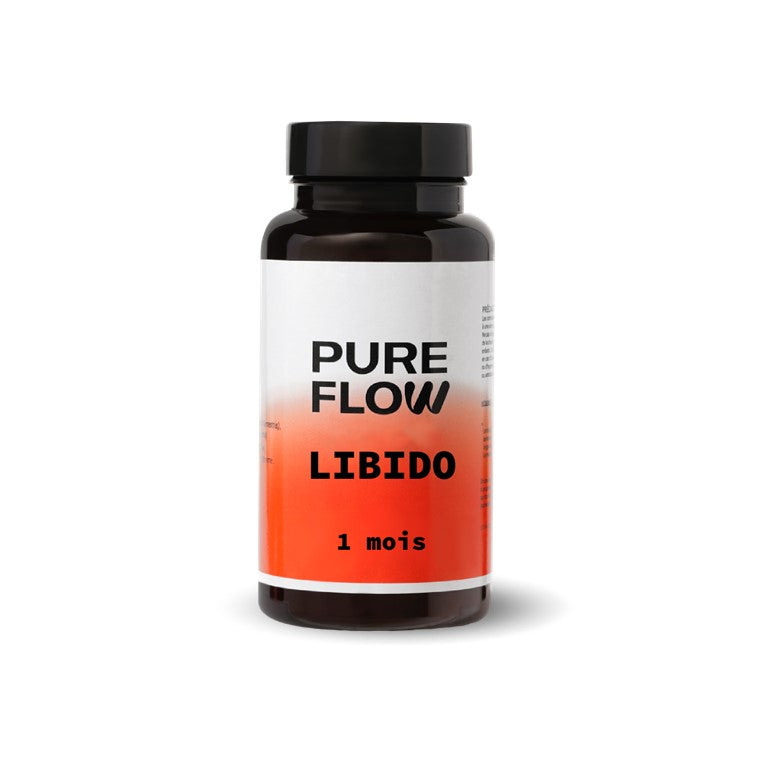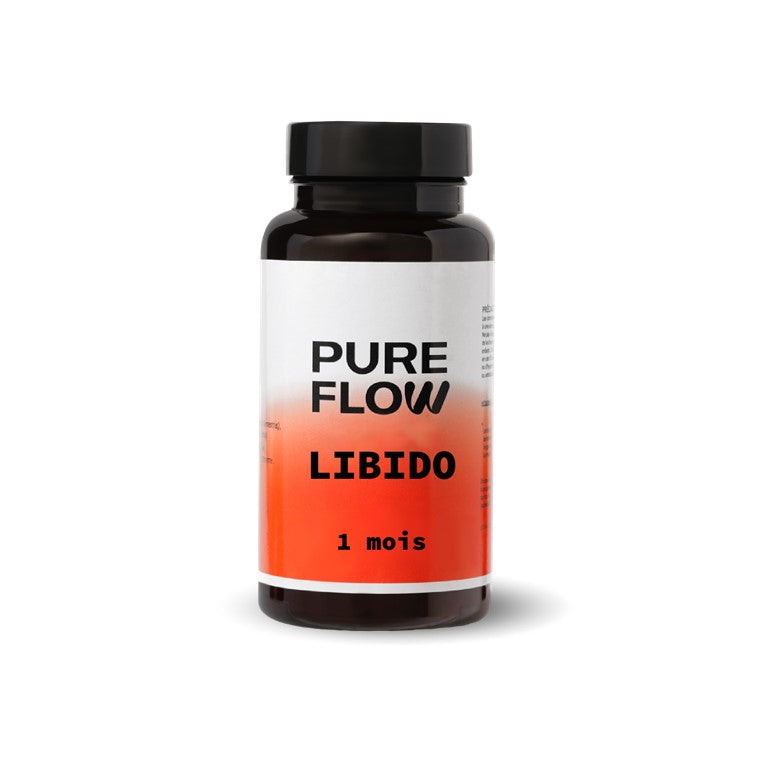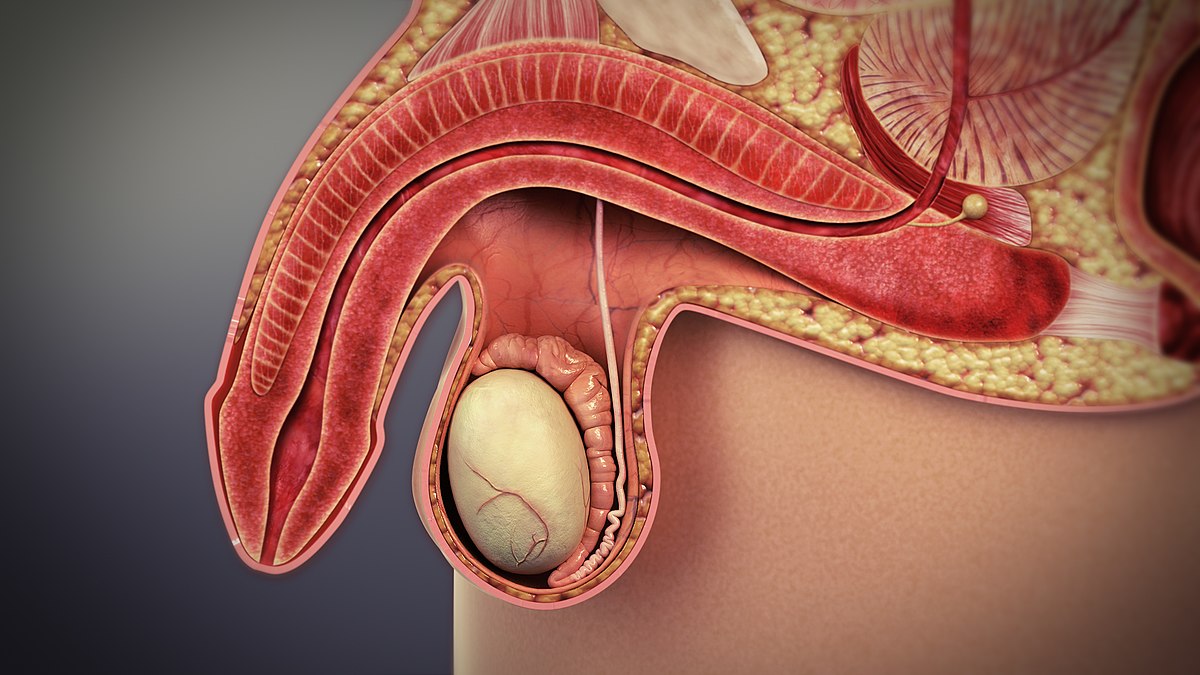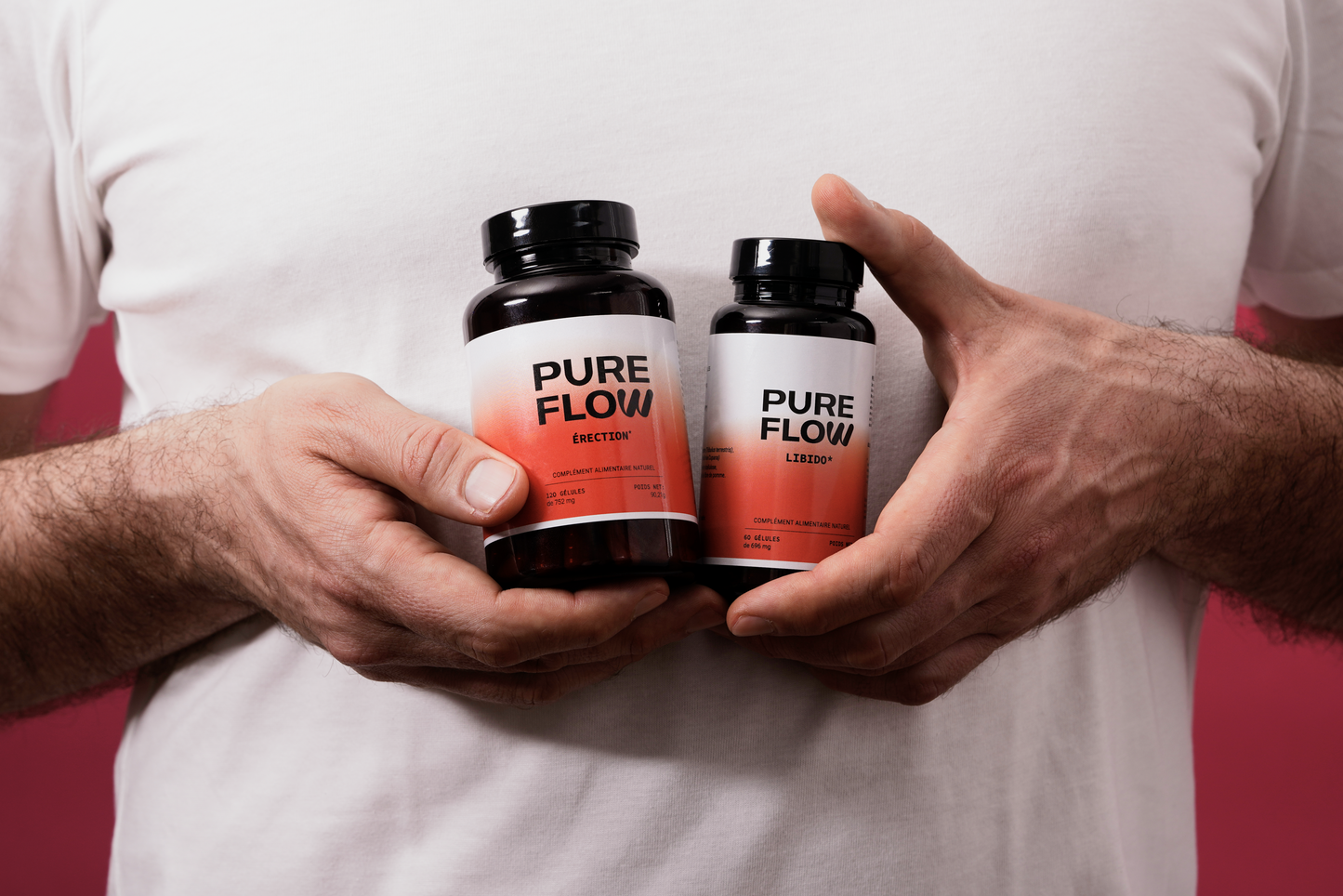In this blog post, we will explore in depth testosterone, a crucial hormone that plays a central role in the human body in both men and women. We will cover topics such as testosterone levels, its impact on arousal in men, testosterone treatments, the presence of this hormone in women, how to increase testosterone levels naturally, and the use testosterone boosters.
-
Decreased muscle mass: Loss of muscle mass and strength.
-
Increased body fat: Particularly around the abdomen.
-
Fatigue: Reduced energy levels and feeling tired.
-
Libido problems: Decreased sexual desire.
-
Dysorgasmia : difficulty reaching orgasm, delayed orgasm, loss of orgasm intensity
-
Erection problems : disappearance of morning erections, less rigid erections, difficult erections
-
Mood problems: Increased risk of depression and anxiety.
-
Decreased bone density: Increased risk of osteoporosis and fractures.
-
Fertility problems:
May reduce sperm quality. Loss of ejaculation volume .
Managing testosterone levels, whether through natural means or medical treatments, should be done under the supervision of a healthcare professional to avoid risks associated with unbalanced levels. Maintaining hormonal balance is crucial to maintaining overall health and well-being.
Testosterone Levels
-
Testosterone Levels in Men: In men, testosterone is the primary sex hormone, and its levels play a crucial role in the development of male sexual characteristics such as muscle mass, deep voice, and hair growth. time of adolescence . Testosterone levels can vary depending on age, general health, and lifestyle (sport, alcohol consumption, diet, etc.) . Low testosterone in men will lead to symptoms such as fatigue, decreased libido, and loss of muscle mass (replaced by weight gain and increased body fat) , depressed mood, and depression. loss of desire to achieve one's goals, loss of hair density, increased risk of having a cardiovascular accident, poor quality and unstable erections, loss of morning erections, difficulty reaching orgasm , a decrease in the quantity of semen ejaculated.
-
Testosterone Levels in Women : Although present in much lower amounts, testosterone also plays an important role in the female body, contributing to libido, bone health, and general well-being. In women, an imbalance in testosterone levels can manifest with symptoms such as menstrual irregularities, decreased fertility, and changes in body fat distribution.
Testosterone and Male Sexuality
Testosterone, as the dominant sex hormone in men, plays a fundamental role in male sexuality. It influences various aspects of sexual health, including libido, erectile capacity, and even ejaculation control. Here is a detailed overview of its impact on erectile dysfunction, premature ejaculation, and libido:
-
Crucial Role : Testosterone helps maintain erectile function by supporting blood flow to the penis and regulating the erection mechanism. An adequate level of this hormone is essential for achieving and maintaining a satisfactory erection.
-
Effects of Low Levels : Low testosterone levels can be associated with erectile dysfunction, making it more difficult to get or maintain an erection. This is due to its role in maintaining the vascular and nerve health necessary for an erection.
-
Indirect Influence : Although the link between testosterone and premature ejaculation is not as direct as it is for erectile dysfunction, proper hormonal balance can positively influence ejaculatory control. Balanced testosterone levels can contribute to better regulation of sexual responses.
-
Ongoing Research : Research continues to explore how testosterone and other hormones influence premature ejaculation, suggesting that hormonal management may be an aspect of treatment for some men.
-
Increased Libido : Testosterone is directly linked to libido or sexual desire. A healthy level of this hormone is often associated with increased interest in sexual activity.
-
Decrease with Age : As testosterone levels naturally decrease with age, it is common for men to experience a decline in libido as they age. Treatments aimed at increasing testosterone levels can help restore sexual desire.
How to Increase Your Testosterone
Natural Methods to Boost Testosterone
-
Balanced Diet : Consume a diet rich in essential nutrients. Prioritize foods rich in zinc (like oysters and red meat), magnesium (like spinach and almonds), and vitamins D and B, which are crucial for testosterone production.
-
Resistance Exercises :
Incorporate resistance exercises, such as weight training, into your routine. These activities stimulate testosterone production by encouraging muscle growth . Excessive endurance exercise does not promote testosterone secretion
-
Adequate Sleep : Make sure you get enough sleep each night. Lack of sleep can significantly reduce testosterone levels in men.
-
Reduce Stress : Chronic stress elevates levels of cortisol, a hormone that can decrease testosterone. Finding effective methods to manage stress is therefore essential.
-
Limiting Alcohol : Excessive alcohol consumption can decrease testosterone levels. Moderating your consumption can help maintain balanced hormonal levels.
Testosterone treatment
For those experiencing low testosterone levels confirmed by a medical diagnosis, testosterone replacement treatments (TRT) may be an option. These treatments, which can take the form of gels, patches, injections, or tablets, aim to normalize testosterone levels.
Testosterone Booster
Testosterone boosters are supplements that claim to increase testosterone levels. It is essential to select products based on scientific evidence and consult a healthcare professional before starting any supplement, due to the potential risks of side effects.
Our product Pure Flow - Stimulates Libido contains 700mg of Tribulus Terrestris which helps the body produce testosterone naturally .
How to Get Testosterone at the Pharmacy?
Purchasing testosterone from a pharmacy requires a prescription from a doctor, after a thorough assessment of your needs and current hormonal levels. It is crucial to never take testosterone without medical supervision, as it can cause serious side effects.
Conclusion
Testosterone is a fundamental hormone that profoundly influences not only sexual and reproductive health, but also overall physical and mental health. Understanding its role and maintaining balanced levels is essential to supporting a fulfilling and healthy life. Whether through natural methods such as a balanced diet, exercise, adequate sleep, and stress management, or through medical treatments under professional supervision, it is possible to effectively manage testosterone levels. The risks associated with abnormal testosterone levels highlight the importance of a careful and informed approach. While the temptation to resort to testosterone boosters can be great, it is crucial to prioritize safety and effectiveness, opting for recognized products and consulting health professionals. Ultimately, testosterone management is a personal journey and must be tailored to individual needs. Open communication with your doctor can help you navigate the most appropriate options for your health and well-being. As with many aspects of health, balance is key, and testosterone is no exception.










